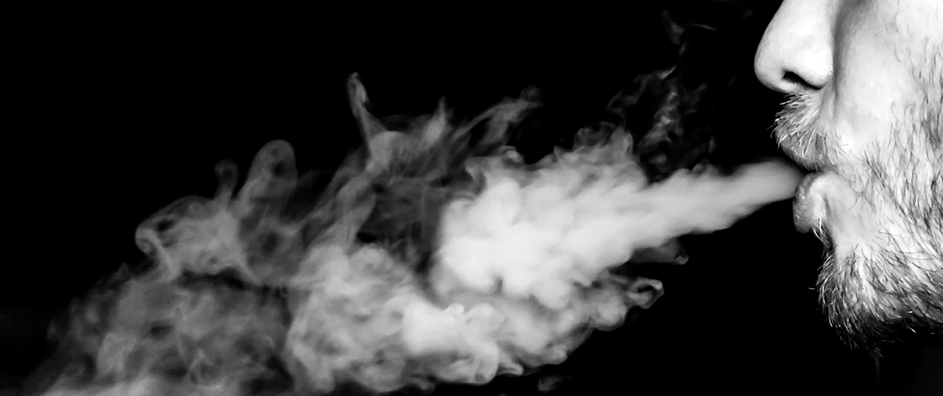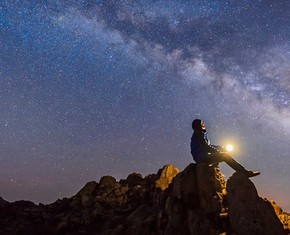The views expressed in our content reflect individual perspectives and do not represent the authoritative views of the Baha'i Faith.
In rural Northern California, where I live, the number one cash crop is cannabis. Dope, chronic, hydro, smoke, pot or marijuana—whatever you call it, cannabis rules this area’s agriculture.
Pot grows everywhere. But it’s not the weak Woodstock variety that got people mildly high in the ‘60s. It’s much stronger, because the growers have learned that higher THC content (that’s tetrahydrocannabinol, the psychoactive ingredient in marijuana) means higher profits. Most experts agree that today’s pot packs as much as ten times the punch it did in the old days. More akin to hashish, the highly-concentrated form of cannabis, today’s potent marijuana has THC content that makes it highly hallucinatory and yes, even addictive.
But hey, you can’t get addicted to pot! Right?
Maybe not as readily to the older and much weaker marijuana—but yes, the newer and stronger strains can definitely be addictive. Don’t believe me? Look the statistics:
Among those entering addiction treatment in the United States in 2010, 18% said that their primary drug was marijuana but another 21% said that it was their second or third most problematic drug.
According to the United States Substance Abuse and Mental Health Services Administration, in 2010, more than 360,000 people were admitted to public treatment programs for addiction (and many more to private programs), with marijuana being listed as the primary drug they abused. They went into rehab because of marijuana and its effects on their bodies and minds.
Forty-three percent of those admissions were under 21. (Source: National Institutes of Health)
The addictive effects of today’s highly-potent cannabis become much more pronounced, the experts all agree, when people start young—as most do.
 Kevin Sabet, the former drug policy advisor the for Clinton, Bush and Obama administrations and the co-founder of Smart Approaches to Marijuana (https://learnaboutsam.org/), cites a well-regarded National Institutes of Health study that concludes one in six adolescents who try marijuana become addicted.
Kevin Sabet, the former drug policy advisor the for Clinton, Bush and Obama administrations and the co-founder of Smart Approaches to Marijuana (https://learnaboutsam.org/), cites a well-regarded National Institutes of Health study that concludes one in six adolescents who try marijuana become addicted.
Another study, in the journal Addiction, concluded that sustained heavy, daily, adolescent-onset cannabis use over decades is associated with a decline in IQ by age 38. In fact, modern science has proven—and every major scientific and medical organization agrees—that marijuana is both addictive and harmful to the human brain, especially when used by adolescents.
But once addicted, pot users will continue to use the drug, despite the results of serious studies like these. Heavy cannabis smokers stop caring about the damage, and stay stoned. One adolescent I know told me “I’m no addict. I just really like pot, so I get high every day.”
That definitely fits the definition of “addiction,” right?
What do the Baha’i teachings say about marijuana? First, as we’ve already discussed in this series of essays, Baha’u’llah and Abdu’l-Baha clearly say that alcohol and drugs should only be used under the direction of a competent physician. Where it’s legal, some physicians now prescribe cannabis, which does have legitimate medicinal uses—reducing nausea and other side effects during chemotherapy for various advanced cancers; improving appetite in patients with HIV/AIDS; as a treatment for glaucoma or multiple sclerosis; and as an analgesic in cases of chronic pain when other drugs fail to provide relief. These kinds of legitimate medical uses seem to fit the general Baha’i view on the use of drugs:
Do not neglect medical treatment when it is necessary, but leave it off when health has been restored. Treat disease through diet, by preference, refrain from the use of drugs; and if you find what is required in a single herb, do not resort to a compounded medicament… Abstain from drugs when health is good, but administer them when necessary. – Baha’u’llah, quoted in Dr. J.E. Esselmont’s Baha’u’llah and the New Era, p. 106.
However, the Baha’i teachings also contain serious warnings about the spiritual effects of addiction to cannabis, especially when strongly concentrated in the levels common in hashish:
Regarding hashish you had pointed out that some Persians have become habituated to its use. Gracious God! This is the worst of all intoxicants, and its prohibition is explicitly revealed. Its use causeth the disintegration of thought and the complete torpor of the soul…
Alcohol consumeth the mind and causeth man to commit acts of absurdity, but… this wicked hashish extinguisheth the mind, freezeth the spirit, petrifieth the soul, wasteth the body and leaveth man frustrated and lost. – Abdu’l-Baha, from a tablet to an individual Baha’i, cited by the Universal House of Justice in a letter to the National Spiritual Assembly of the Baha’is of the Hawaiian Islands, 1967.
When we hear or read about these kinds of debilitating drug or alcohol addictions, we generally learn about the effects on the brain or the body. We rarely learn about the effect on our souls. When Abdu’l-Baha says that the concentrated cannabis in hashish petrifies and causes the torpor of the soul, that dire warning ought to make everyone who values their spiritual growth reconsider any recreational use of such a potentially damaging drug.
The body and the mind can heal and recover from addiction—we know that—but does the soul? Can we ever recover our lost spiritual growth and maturity? I don’t know the answer, but I suspect that we might find it here:
Make ye then a mighty effort, that the purity and sanctity which, above all else, are cherished by Abdu’l-Baha, shall distinguish the people of Baha, …that for purity, immaculacy, refinement, and the preservation of health, they shall be leaders in the vanguard of those who know. And that by their freedom from enslavement, their knowledge, their self-control, they shall be first among the pure, the free and the wise. – Abdu’l-Baha, Selections from the Writings of Abdu’l-Baha, p. 150.
You May Also Like
Comments

















Youth should not ingest these things. That is a no brainer. But the breathless hype is far too reminiscent of the same hype.50 years ago.